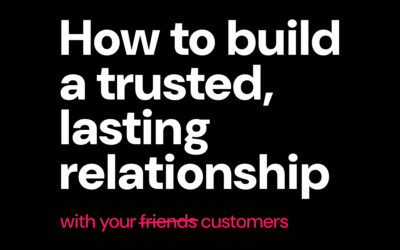Research. The key to understanding your market. The step you take before pouring your time, energy, and resources into strategy and creative work. It tells you what you’re doing, why you’re doing it, and how to go about it.
Yet, in my experience, many SMB’s skip this step.
Campaigns get built on assumptions rather than insights. Even if those assumptions end up being accurate, you can’t help but wonder: How much better would this have been with proper research?
Marketing legend Mark Ritson suggests that 5% of your total marketing budget should go to research.
From personal experience, when research is done well, everything else falls into place beautifully. Research give you the full picture— market segments, their pains, gains, and needs—helping you target the right audience with the right message and focus your resources where they matter most.
So why isn’t research happening? And more importantly, how can we overcome these barriers?
Why Do We Avoid Research?
- It’s Seen as Too Expensive – Research feels like a luxury. Businesses think it’s too costly and prefer to funnel budgets into campaigns with faster returns, like ads or promotions.
- No One Has the Time – Research requires effort and brain power. Time to plan, execute, and analyse—things that feel hard to prioritise when deadlines are tight. Teams often favour tactics over preparation.
- Fear of Unwelcome Results – Some businesses worry that research could contradict their assumptions or highlight weaknesses, forcing a change in strategy—and that’s uncomfortable.
- Overconfidence or Ego – “We know our market” is a common mindset. Decision-makers often trust their gut over data, leading to campaigns based on assumptions rather than real insights.
- Lack of Awareness of Research’s Value – When research’s long-term value isn’t obvious, it gets overlooked in favour of activities that offer more immediate gratification.
Overcoming the Barriers with Cost-Effective Research
- Google and Pre-Existing Data – Use search engines, industry reports, social media, and even customer reviews to build a market picture. It’s quick and often free—a great place to start, even if it’s not perfect.
- Talk to People – Quick one-on-one interviews or informal focus groups with customers can uncover powerful insights. This doesn’t need to be expensive or complex—it just requires organising and thoughtful questions.
- DIY Surveys – Tools like Google Forms or SurveyMonkey allow you to test assumptions and gain real feedback at scale. A well-structured survey will reveal both confirmation and surprises—helping you refine your approach.
- Keep Iterating – Research isn’t a one-time thing. It’s a loop—each round of research gives you new insights to test and refine your strategy further. That’s how you get it right.
- Shift Your Mindset – Research is an investment, not an expense. Ask yourself – “how much is NOT researching costing us?”. It saves you money by helping you focus your time, budget, and energy where it matters most. By eliminating guesswork and preventing costly missteps, research ensures that your marketing efforts align with actual customer needs—minimising waste and maximising impact over the long term.
If You Can’t Spend 5% of Your Budget, Spend 5% of Your Time
The insights you gather through even small research efforts will act as your guiding star throughout the project—a quote you’ll return to again and again, reaffirming that you’re on the right track. These insights keep you aligned, help you make better decisions, and ensure your strategy stays grounded in what matters most to your audience.
If research feels expensive, try marketing without it. The cost of skipping research often shows up later—missed opportunities, ineffective campaigns, wasted resources, and misaligned messaging. Without insights, you’re left guessing, hoping your efforts hit the mark.
Research doesn’t need to be expensive—it just needs to be smart. Using the tools and data already at your disposal, keeping things simple, and focusing on what matters. There are effective ways to uncover insights and test them, and I’d love to help show you how to make these work for your business.
Want to chat about how to unlock powerful insights for your business without blowing the budget? Let’s connect. I’d love to explore ways to make research work for you—the smart way.





